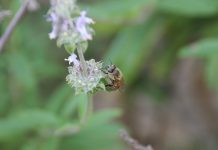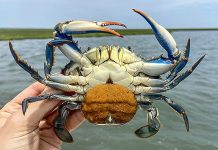
In a remarkable display of nature’s unpredictability, a killer whale was observed for the first time ever eating a great white shark off the coast of Mossel Bay, South Africa.
This event, captured by Dr. Alison Towner and her team from Rhodes University, showcases a previously unseen behavior in killer whales, highlighting their extraordinary hunting skills.
Killer whales, also known as orcas, are known for their intelligence and teamwork when hunting large prey such as sea lions, seals, and even other whales.
However, this incident involved a lone orca, nicknamed Starboard due to his distinctive collapsed dorsal fin, taking down a great white shark all by himself in just two minutes.
Starboard specifically targeted the shark’s liver, a nutrient-rich organ, showcasing a highly specialized form of feeding.
This sighting is part of a continuing study into how orcas have been affecting shark populations in South Africa. Since 2017, Dr. Towner and her colleagues have noticed that some orcas have been hunting great white sharks, leading to a decrease in shark numbers at their usual gathering spots.
The latest findings, published in the African Journal of Marine Science, add a new layer to our understanding of orca behavior, showing that they can also hunt large predators like great white sharks individually.
The observed event not only demonstrates the orca’s impressive hunting ability but also raises questions about its impact on the marine ecosystem.
The disappearance of sharks due to orca predation could lead to significant changes in the ocean’s food web, affecting the balance of marine life.
Dr. Simon Elwen, a whale expert, emphasized the importance of these observations, noting that killer whales are capable of learning new hunting strategies quickly. This adaptability makes it crucial to monitor their behavior and understand its effects on other marine species.
The successful documentation of this event was made possible through the collaboration of researchers, tourists, and conservation organizations, highlighting the value of citizen science in capturing important moments in nature.
Witnesses to the predation described the experience as both awe-inspiring and sobering, emphasizing the power and impact of these top predators on their environment.
The event serves as a reminder of the dynamic and ever-changing nature of marine ecosystems and the need for adaptable conservation strategies to protect these complex habitats.
This groundbreaking observation provides further insights into the adaptability and ecological impact of killer whales, underscoring the importance of continued research and monitoring to understand and protect marine ecosystems.
The research findings can be found in the African Journal of Marine Science.
Copyright © 2024 Knowridge Science Report. All rights reserved.



